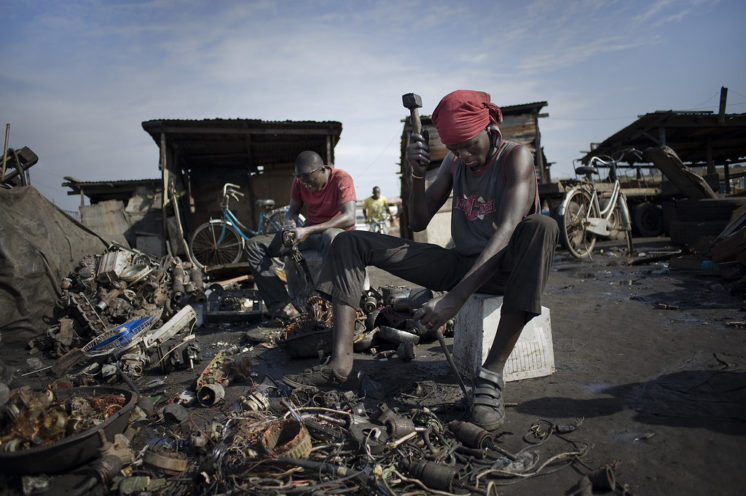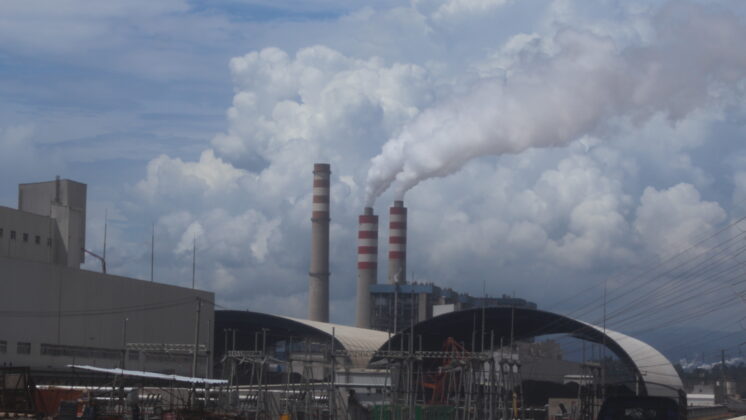A research published in the International Journal of Environmental Research and Public Health studies the musculoskeletal disorder symptoms among workers in electronic waste recycling site in Ghana. Ghana is one of the biggest destinations of e-waste export in the world.
 Photo: "Kids of Sodom - E-waste in Ghana" by BRS MEAS is licensed under CC BY-NC-SA 2.0
Photo: "Kids of Sodom - E-waste in Ghana" by BRS MEAS is licensed under CC BY-NC-SA 2.0Every year, large volumes of e-waste from Europe and North America are shipped to developing countries in Africa, South America, and Asia. E-waste recycling and handling are mostly informal sectors. Workers in this sector collect, dismantle, burn/melt the e-waste. E-waste contains hazardous chemicals and heavy metals such as lead and cadmium. Those hazardous chemicals and heavy metals are not only harmful to the environment but also to the workers who handle them.
The study took two locations, i.e. the E-waste recycling site at Anbogbloshie in Accra, Ghana, and at Madina Zongo, a suburb of greater Accra, Ghana. Workers in both sites work to recover re-usable parts, isolating precious metals, and other scrap material for sale. They engage in multiple manual tasks mostly collection, dismantling and burning.
In doing their work, these workers sit, stand, walk, sit in a low squatting posture, with frequent and heavy manual material handling in not-neutral postures for a long duration. They pose a potential risk of acute injuries and chronic work-related musculoskeletal disorders.
Download the article here.










